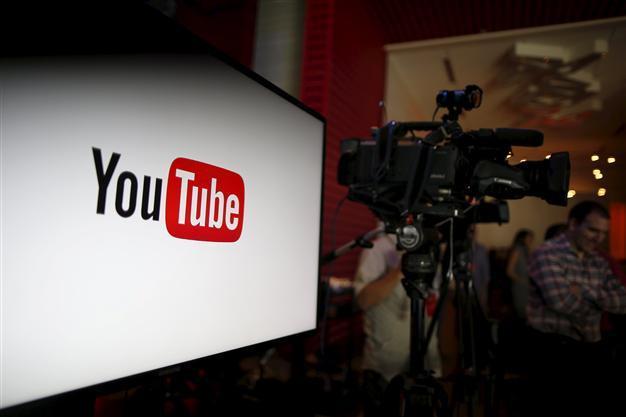Turkey YouTube ban violated freedom of expression: European Court of Human Rights
STRASBOURG - Agence France-Presse

REUTERS Photo
The European Court of Human Rights ruled on Dec. 1 that Turkey had violated conventions on freedom of expression when it banned YouTube for more than two years until late 2010.
An Ankara court had barred access to the video-sharing site from May 2008 to October 2010 over 10 videos deemed insulting to modern Turkey's founding father Mustafa Kemal Atatürk, the Strasbourg-based rights tribunal said.
"Blocking without a legal basis users' access to YouTube infringed the right to receive and impart information," it said, ruling on a case brought by three Turkish law professors.
"The court also found that there was no provision in the law allowing the domestic courts to impose a blanket blocking order on access to the Internet, and in the present case to YouTube, on account of one of its contents."
The lengthy ban on YouTube -- and thousands of other websites -- had prompted widespread concern about freedom of expression under then prime minister and now President Recep Tayyip Erdoğan, who critics say has become increasingly authoritarian.
Before the ban, YouTube had been the fifth most popular site in Turkey.
The Justice and Development Party (AKP) government also blocked Twitter and YouTube in March 2014 after they were used to spread a torrent of audio recordings implicating Erdoğan and his inner circle in the country's largest graft probe.
An Ankara court had barred access to the video-sharing site from May 2008 to October 2010 over 10 videos deemed insulting to modern Turkey's founding father Mustafa Kemal Atatürk, the Strasbourg-based rights tribunal said.
"Blocking without a legal basis users' access to YouTube infringed the right to receive and impart information," it said, ruling on a case brought by three Turkish law professors.
"The court also found that there was no provision in the law allowing the domestic courts to impose a blanket blocking order on access to the Internet, and in the present case to YouTube, on account of one of its contents."
The lengthy ban on YouTube -- and thousands of other websites -- had prompted widespread concern about freedom of expression under then prime minister and now President Recep Tayyip Erdoğan, who critics say has become increasingly authoritarian.
Before the ban, YouTube had been the fifth most popular site in Turkey.
The Justice and Development Party (AKP) government also blocked Twitter and YouTube in March 2014 after they were used to spread a torrent of audio recordings implicating Erdoğan and his inner circle in the country's largest graft probe.
















